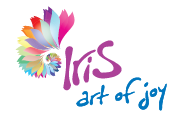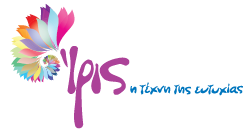I recently returned from the European Conference on Democratic Education (EUDEC 2018), where Agapi Liapaki and myself held a workshop (*) on the importance of teaching life skills and self-leadership to children from as little as 2,5 years old, up to the age of young adults.
This conference of much light and hope, was held for the very first time in Greece and I am delighted to say on the island of Crete! I therefore see this as an opportunity to share with you the main trends.
The first trend is that there are many bright interventions taking place in the darkest or smallest places on the planet, like the one described by Narima Moustafa in Kairo, as a result of the Egyptian revolution in 2011. She is founder of the Self-Directed Learning centre in Egypt and is currently introducing Agile Learning to her work. Another impressive intervention is the Spring Academy, on the little island of Kerkyra (Corfou). This is learning that takes place every spring for 5 days and is open to all ages of the local area for free. What these interventions had in common was their strong link to local community. So localization and community collaboration, is one trend.
As education reformer, Derry Hannam mentioned in his speech, the second trend is, the “tsunami” of the 4th Industrial Revolution, which is already bringing radical changes to our society, the way we live, work and interact, through the development of cutting edge technology, such as: the Bit-coin, Nanotechnology, Internet of things, Technology of Singularity, 3D printing. In 10 years time, the intelligence of machines will have surpassed the collective intelligence of humans!!
Our response to the replacement of many people’s work by machines and high intelligence computers or robots, needs to be a redefinition of our entire attitude towards life, since most of us will have more spare time on our hands. ‘Success’ in life will need to be redefined in terms of ‘happiness’. Life will therefore not be defined by our job anymore, but by our identity as a person and of what we enjoy doing and are good at. So, more focus will be on experimenting and trying to find what our talents are and where does our heart lead us. Also, as a way of thriving in this era, children should focus more on learning skills that computers cannot obtain.
The third trend I noticed was the introduction of many interventions in state schools, with prime example, the primary school in Argyroupoli, in Rethymno (Crete), where school teacher, Aspasia Kalisora, created a culture of self-empowerment in her classroom and was in a position to be absent from her post for a number of days. Her pupils managed their own daily schedule through democratic procedures, without their schooling missing a beat! This is only one specimen of her interventions. As a result, by the end of this year and under the support of the Greek Ministry of Education, more than 200 state school teachers will have been trained on the practices and values of education reformer, Célestin Freinet, which was the model for Aspasia’s interventions (and the group of educationalists in Greece, called: “Skasiarxio” – loosely translated in English as: “Centre of Truancy”).
The fourth trend was the increase in the number of women who are more outspoken and active in the area of educational political reform, like Freya Aquarone in the UK, Zoe Burgess in Portugal and Nana Xatzi, in Greece. It seemed important at this conference, not only to introduce evolutionary initiatives from grass roots, upwards, but also to meet these organic initiatives, half way from the top, down at a political level. This however means that the fear of the ‘Establishment’ needs to be faced by engaging with the individuals that make it up, in a more open and compassionate way. In other words, viewing the individuals that represent the establishment not as the ‘enemy’, but as fellow human beings, that like most of us, have experienced a harsh and rigid educational system. So taking off the labels we place on people and having sincere, heart to heart discussions, is key to a new way of top-down influencing.
The fifth trend worth mentioning that I noticed and has also been confirmed by my own teaching experience, was, the importance of experiential learning in the development of life skills. Both learning through experience and life skills, are what is needed to produce happy, well balanced young adults. More importantly, ‘teaching’ life skills through experiential learning, will equip young graduates, with competencies that machines cannot obtain, protecting them therefore, from becoming redundant. So, as Derry Hannam mentioned, notions such as ‘responsibility’, ‘democracy’, ‘morality’, ‘entrepreneurship’, ‘human rights’, ‘relationships built on trust’, cannot be taught in a traditional classroom. They can only be taught by firsthand experience and also … by having fun. “When kids are happy, they learn” – Jerome Bruno.
Overall, EUDEC 2018 was a conference that gave me much optimism and strength to go forward. The many lonely cuckoos working in the service of ‘Pedia’, will soon be working as a beautiful symphonic orchestra and it this that will, beyond a shadow of a doubt, produce the exponential disruption needed for a better future!
#selfleadership #leadership #EUDEC #education #reform #4ir #industrialrevolution #joy #artofhappiness #youngadults #youth #derryhannam
Article by Alexia Mary Tzortzaki, Ph.D.
Email: amtzortzaki [at] yahoo [dot] gr
—————————————————–
(*) The workshop was called: “Exploring the teaching of Self-Leadership from 2.5 years up to 35 years – a fun and interactive workshop”.
It was held by Alexia Mary Tzortzaki and Agapi Liapaki. A few words about the workshop: The workshop was one of fun and interaction and whose purpose was to enrich our “open dialogue” on the role of teachers in helping young children and young people to evolve into leaders of their own world. In this workshop self-leadership was explored through a number of interactive games. It ended with a circle using a talking piece, with participants sitting in a “web format”.
Both Alexia and Agapi are dedicated to their life visions.
Alexia is a professor who teaches Management and Personal Leadership to young people at the Technological Educational Institute of Crete and her vision “Sparkles in Young People’s Eyes” can be found at her website https://www.artofjoy.gr/?lang=en
Agapi is an educator and the founder of Play & Learn, an alternative school, based in Heraklion, Crete. Children as young as 2.5 years old are taught important life skills through the use of games and the English language. Details of her work can be found here: http://www.playnlearn.gr
Photo: participants at EUDEC 2018, Crete – “Under the Wise Oak Tree”


